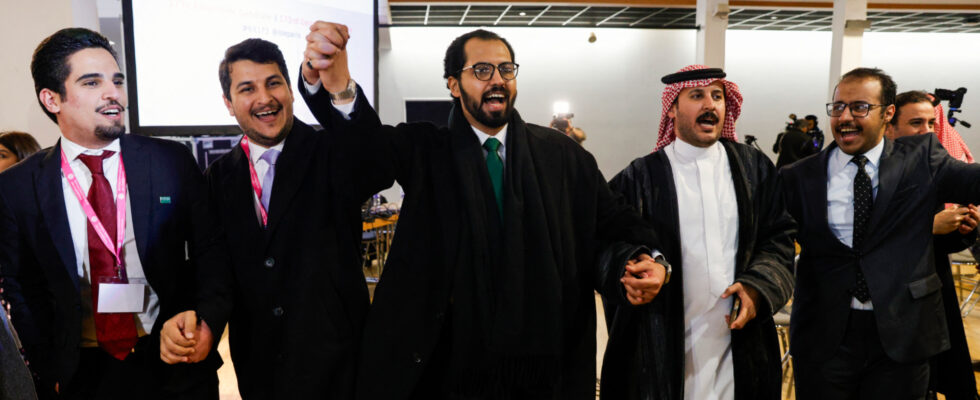The Saudi capital Riyadh was chosen on Tuesday to host the prestigious 2030 Universal Expo, well ahead of its South Korean rivals Busan and Italian Rome in the first round of voting by the BIE (Bureau international des Expositions). Riyadh won 119 votes, compared to 29 for Busan and 17 for Rome, easily two-thirds of the 165 votes required, according to the BIE results. When the results were announced, cries of joy resounded within the large Saudi delegation.
The confidence of the international community
“We are immensely proud of this result,” said Saudi Foreign Minister Faisal bin Farhan Al Saud. “It is an expression of the confidence of the international community in what we have to offer, and we are committed to meeting expectations,” he said.
He also welcomed that the organization of the Expo coincides with Vision 2030, a reform program aimed at reducing the kingdom’s dependence on oil. “Saudi Arabia won Expo 2030 decisively,” declared Dimitri Kerkentzes, secretary general of the BIE, congratulating Riyadh for its “incredible victory”.
“This exhibition will be the catalyst for transformation” of the kingdom, he said during the press conference following the vote. The three candidate cities all prided themselves on carrying out green projects, with high technological value, to win the organization of the Expo, an event which attracts millions of visitors, and had launched intense lobbying campaigns in recent years. last months. During the presentation of the files in June in Paris, the Crown Prince of Saudi Arabia Mohammed Ben Salman, the South Korean President Yoon Suk-yeol, and the President of the Italian Council Giorgia Meloni were present.
Many reviews
The Saudi candidacy boasts “world-class natural landscapes” and “the first carbon-negative exposure”, in a country that is nevertheless arid, among the leading oil producers in the world and one of the leading emitters of greenhouse gases by inhabitant. However, it has attracted considerable criticism. Fifteen human rights NGOs called on the IBE last Tuesday to “not vote” for Riyadh because of its “terrible” record in terms of human rights.
Ambassador Giampiero Massolo, president of the Rome-2030 Promoting Committee, for his part criticized to AFP before the vote the “mercantile drift of the other applications”, which promise “a high volume of investments, private or public , to obtain a large part of the votes”.
“Harmony of nature, humanity, technology”
For sociologist Patrick le Galès, research director at CNRS, the French center for scientific research, this type of event serves above all to “valorize the existing elites”. The South Korean candidacy promoted a “harmony of nature, humanity, technology”, built on a former industrial port of Busan, and Italy intended to “bring history and the future closer together” in Rome, where the “largest urban solar park in the world” would be built for the occasion.
Universal exhibitions are held every five years and last a maximum of six months. They allow the chosen country to “show itself to the world”, while being “a laboratory for architects”, according to Dimitri Kerkentzes. For example, the Eiffel Tower was built in Paris for the Universal Exhibition of 1889, as were the Atomium and the “Space Needle”, symbolic structures of Brussels and Seattle (United States), were for those of 1958 and 1962. The most recent, in Dubai, recorded 24 million visitors. The 2025 event will take place in Osaka, Japan.
